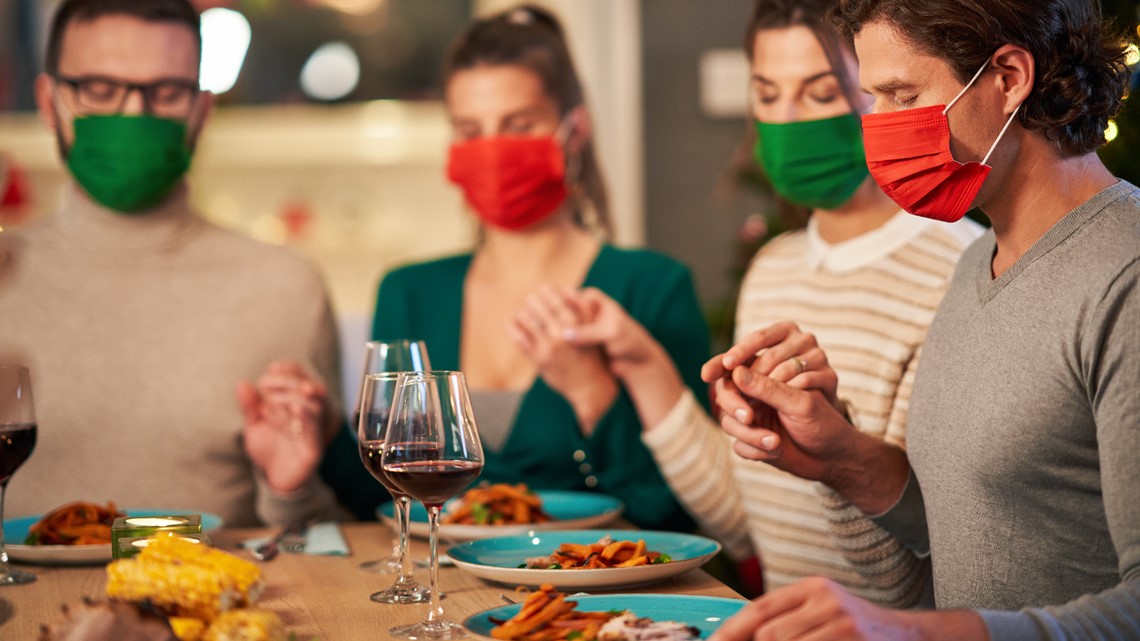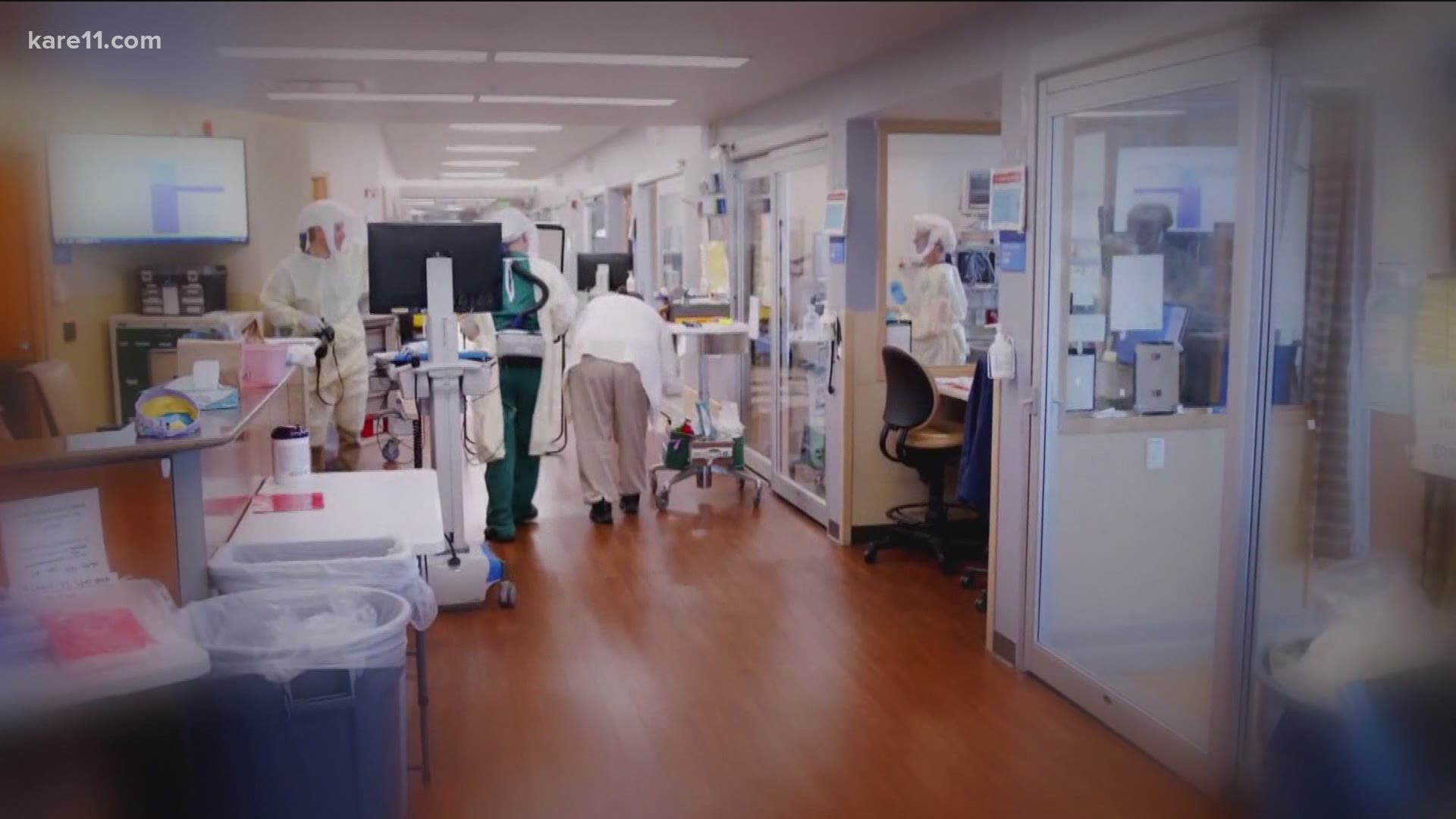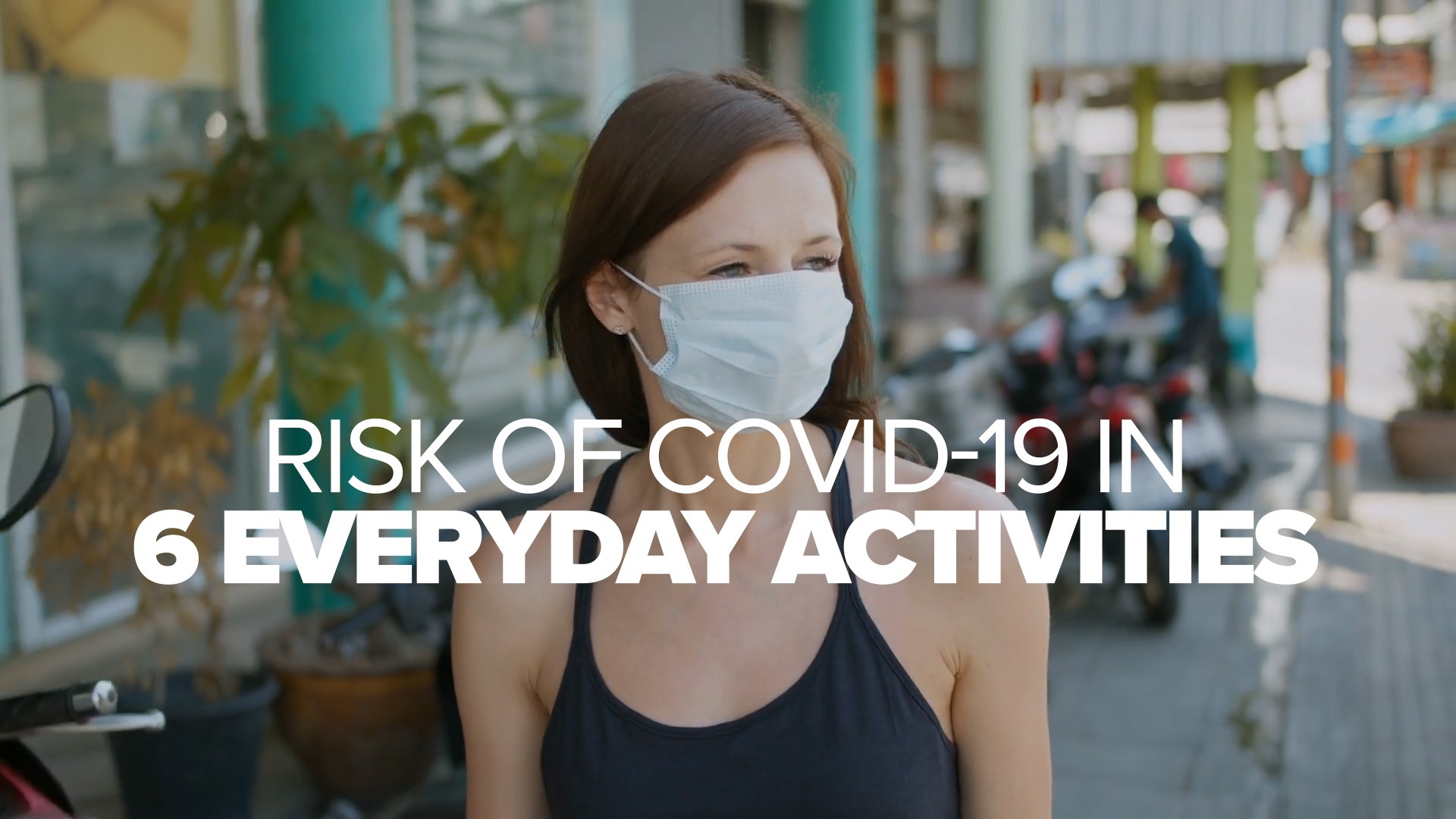WASHINGTON — Thanksgiving is right around the corner, and 2020 has been an unusual year with a global pandemic upending summer and now fall and winter holiday plans.
For the first time, the Centers for Disease Control and Prevention has issued guidance and steps for Americans to take to safely celebrate Thanksgiving.
The CDC says its guidance is meant to supplement, but not replace any state or local health and safety laws.
In an interview with "CBS Evening News" host Norah O'Donnell at the beginning of October, Dr. Anthony Fauci highlighted the concern about the virus spreading in the fall. He said people should be careful "about social gatherings, particularly when members of the family might be at a risk because of their age or their underlying condition."
That includes holiday gatherings like Thanksgiving.
"You may have to bite the bullet and sacrifice that social gathering unless you're pretty certain that the people that you're dealing with are not infected," Fauci told O'Donnell.
For most people, the new coronavirus causes mild or moderate symptoms. For some, especially older adults and people with existing health problems, it can cause more severe illness, including pneumonia and death.
The United States has nearly 10 million confirmed cases of COVID-19, according to data from Johns Hopkins University.
As of Monday, the U.S. had more than 237,000 deaths from the virus. Worldwide, there are more than 50 million confirmed cases with more than 1.2 million deaths.
Quick Tips
WASH YOUR HANDS often and with soap and water for at least 20 seconds. The CDC says this should be done after someone has been in a public place, after blowing their nose, coughing or sneezing. If soap and water aren't available, hand sanitizer that contains at least 60% alcohol will work just as well.
The CDC encourages everyone to continue wearing cloth masks in public and to continue practicing social distancing. It recommends everyone to maintain a distance of at least 6 feet or more from people you don’t live with.
If anyone thinks they have been exposed during a holiday event, they should take extra precautions like staying home as much as possible for 14 days, avoid being around people and consider getting tested for the coronavirus.
Holiday Gatherings
The first step to help reduce the spread of the virus is to "assess current COVID-19 levels in your community to determine whether to postpone, cancel, or limit the number of attendees," the CDC said.
Health officials recommend celebrating virtually or only with family members, which poses only a low risk of spreading the virus. People who shouldn't attend a Thanksgiving gathering this year include those with or exposed to the coronavirus and people who have an increased risk for severe illness. The CDC explains that large gatherings of families and friends, crowded parties and travel may put people at increased risk for COVID-19.
If someone is hosting a Thanksgiving gathering, even amid the virus, the CDC asks that people consider the following steps to keep everyone safe:
- Host outdoor activities rather than indoor activities
- Try and limit guests to just people in the local area
- Limit the number of guests as much as possible
- Encourage guests to wear masks and use hand sanitizer
- Ask guests to "strictly avoid contact with people outside of their households for 14 days before the gathering"
The CDC encourages guests to avoid singing or shouting, especially indoors. It recommends keeping music levels down so people don’t have to shout or speak loudly to be heard.
If someone develops COVID-19 symptoms or tests positive after a gathering, they should immediately contact the host and others that attended the event.
Food and Drink Safety Tips
Right now, there is no evidence that suggests handling food or eating is associated with spreading the respiratory disease, according to the CDC. However, COVID-19 could spread if someone touches a surface or object, including food, food packaging or utensils where respiratory droplets have landed then they touch their face, nose or mouth.
The CDC released a list of suggestions for people to have good hygiene to reduce the risk of spreading germs around food and drinks:
- Wash hands with soap and water for at least 20 seconds
- Instead of potluck, encourage everyone to have their own drinks and food
- Limit people around the food preparation area
- Wear a mask while preparing food or serving others
- Use single-use options or identify one person to serve sharable items
- Avoid any self-serve food or drink options


Travel Safety Tips
The CDC said traveling can increase someone's chance of contracting the coronavirus. It said, "staying home is the best way to protect yourself and others."
It asks that people don't travel if they're sick, or if they've been in contact with someone with COVID-19 in the last 14 days. While traveling, the CDC highly recommends everyone wear a mask on public transportation, planes, trains, ships, ferries, taxis and rideshares.
It said airports, bus stations, train stations, and rest stops are all places travelers can be exposed to the virus in the air and on surfaces.
Low Risk Thanksgiving Activities
The CDC released a list of low-risk activities that families can follow to help slow the spread of the coronavirus.
- Having a small dinner with only people who live in your household
- Preparing traditional family recipes for family and neighbors, especially those at higher risk of severe illness from COVID-19, and delivering them in a way that doesn’t involve contact with others
- Having a virtual dinner and sharing recipes with friends and family
- Shopping online rather than in person on the day after Thanksgiving or the next Monday
- Watching sporting events, parades, and movies from home
Moderate Risk Thanksgiving Activities
Here's the CDC's list of moderate risk Thanksgiving activities that have more potential to spread the virus:
- Having a small outdoor dinner with family and friends who live in your community
- Visiting pumpkin patches or orchards where people use hand sanitizer before touching pumpkins or picking apples, wearing masks is encouraged or enforced, and people are able to maintain social distancing
- Attending small outdoor sports events with safety precautions in place
High Risk Thanksgiving Activities
According to the CDC, these activities around Thanksgiving could increase someone's chances of becoming infected by the coronavirus:
- Going shopping in crowded stores just before, on, or after Thanksgiving
- Participating or being a spectator at a crowded race
- Attending crowded parades
- Using alcohol or drugs, which can cloud judgement and increase risky behaviors
- Attending large indoor gatherings with people from outside of your household


